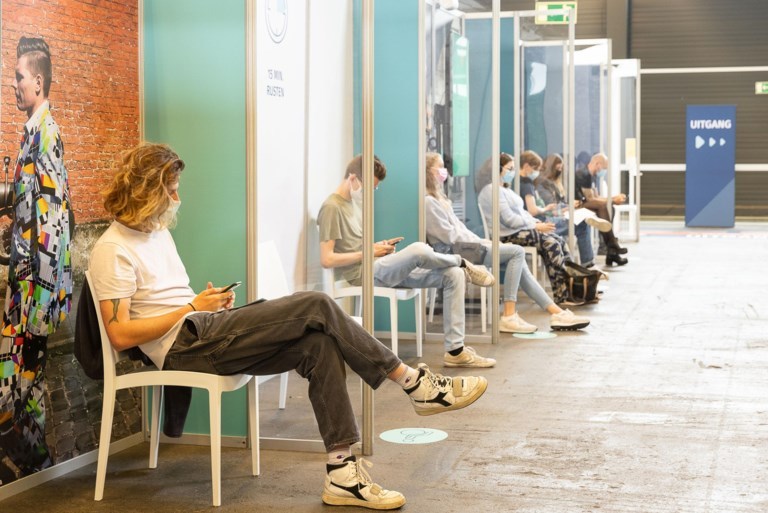In the fight against the Omicron coronavirus variant, the Netherlands will start administering booster vaccinations after only three months, Dutch Health Minister Hugo de Jonge announced on Tuesday.
All over-60s in the Netherlands who had been fully vaccinated for at least six months have already been invited for a booster, but the government is now extending the invitations to all over-60s who received their second dose three months ago.
"By mid-January, all over-18s who have been vaccinated for three months should be given the chance for a booster," De Jonge announced at a press conference.
The Omicron variant currently accounts for an estimated 1% of all infections in the Netherlands (compared to 3% in Belgium), but de Jonge fears that this figure will rise rapidly, as it did in the United Kingdom and Denmark.
In the meantime, the World Health Organisation (WHO) warned that the variant is advancing even more rapidly than initially thought, with confirmed cases in 77 countries.
If we end vaccine inequity, we can help end the #COVID19 pandemic together. If we allow inequity to continue, we allow the pandemic to continue. #VaccinEquity pic.twitter.com/SJiF7m10Ke
— Tedros Adhanom Ghebreyesus (@DrTedros) December 15, 2021
It is likely that even more countries are affected, WHO Director Tedros Adhanom Ghebreyesus said at a press conference on Wednesday morning.
"If we have learned one thing, it is that we keep underestimating this virus. Even if Omicron makes people less sick than the Delta variant, the high number of infections will once again overburden healthcare facilities," he said.
Ghebreyesus also underscored the unfair global distribution of coronavirus vaccines; in some countries booster shots are already being administered, while most of the population in many developing countries has yet to have a first dose.
Belgium's situation
For Belgium, the Federal Government is expecting the advice of the Superior Health Council on possibly shortening the interval between the first two vaccination doses and the booster shot on Wednesday afternoon or Thursday morning.
Federal Health Minister Frank Vandenbroucke stated that he is in favour of shortening the interval after a Pfizer or Moderna vaccination (which the majority of the population in Belgium received) to just five months instead of six.
The Council's advice will soon be followed by concrete decisions to speed up the booster campaign, based on the preparatory work already done by the Vaccination Taskforce, Vandenbroucke's cabinet told the Belga News Agency.
For the practical arrangements, consultation with the Regions would also be necessary, because they are in charge of organising the vaccination campaigns on their territory.
Related News
- Belgium will 'maximise' booster shots before end of 2021, says De Croo
- 3% of all Belgian Covid-19 cases linked to Omicron variant
- Belgium considers administering booster doses after only five months
According to calculations made by several experts, Omicron will likely already take over from Delta as the dominant variant by the end of December or early January.
"Exceptional times require exceptional efforts from exceptional people," virologist Marc Van Ranst said on Twitter. "So: speed up that booster vaccination campaign into a mega-vaccination project. Let's vaccinate late into the night if we have to."
"Let's boost, and let's decide on that tomorrow and just get on with it!"
Bijzondere tijden vragen bijzondere inspanningen van bijzondere mensen. Dus: versnel die boostervaccinatie campagne tot een megavaccinatie-project. Laten we als het moet tot laat in de nacht vaccineren.Let’s boost! En laten we dat morgen beslissen en er gewoon aan beginnen! pic.twitter.com/mEtbcQtJEt
— Marc Van Ranst (@vanranstmarc) December 14, 2021

